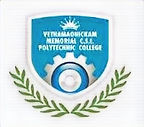Diploma in Electronics & Communication Engineering
Electronics and Communication Engineering (ECE) department highlights include strong industry connections, a focus on both hardware and software skills, and opportunities for research and development in emerging areas. Key aspects often emphasized are state-of-the-art labs, high placement rates, and the faculty's research contributions, often supported by grants and industry partnerships.
Program structure and curriculum
Interdisciplinary foundation: Students gain a strong understanding of both electronic systems and communication technologies, as well as the flexibility to move between hardware and software fields.
Specialized knowledge: Programs often feature specialized areas to allow students to develop expertise in emerging fields.
Value-added courses: Many departments offer extra courses to enhance specific skills and employability.
Research and infrastructure
Advanced laboratories: Departments feature state-of-the-art laboratories, sometimes with the support of industry partners like Texas Instruments or Emerson.
Industry collaboration: Research efforts often involve collaboration with faculty and students on projects that contribute to technological advancement.
Research funding and centers: Many departments attract grants from government agencies and establish research centers focused on areas like VLSI chip design and signal processing.
Faculty and alumni
Expert faculty: Departments are staffed with highly qualified and experienced faculty, with a significant portion holding Ph.D. degrees.
Active research: Faculty members are often active researchers who publish papers, hold patents, and are involved in prestigious professional bodies.
Strong alumni network: Alumni often support current students through placement assistance, mentorship, and by holding high-ranking positions in major global companies.
Career and placement
High placement rates: Departments often boast high placement rates, with students securing jobs in both core ECE roles and other sectors.
Diverse opportunities: Graduates find employment in various fields, including telecommunications, manufacturing, healthcare, and the armed forces.
Entrepreneurship support: Some departments provide support and funding opportunities for students interested in entrepreneurship.




